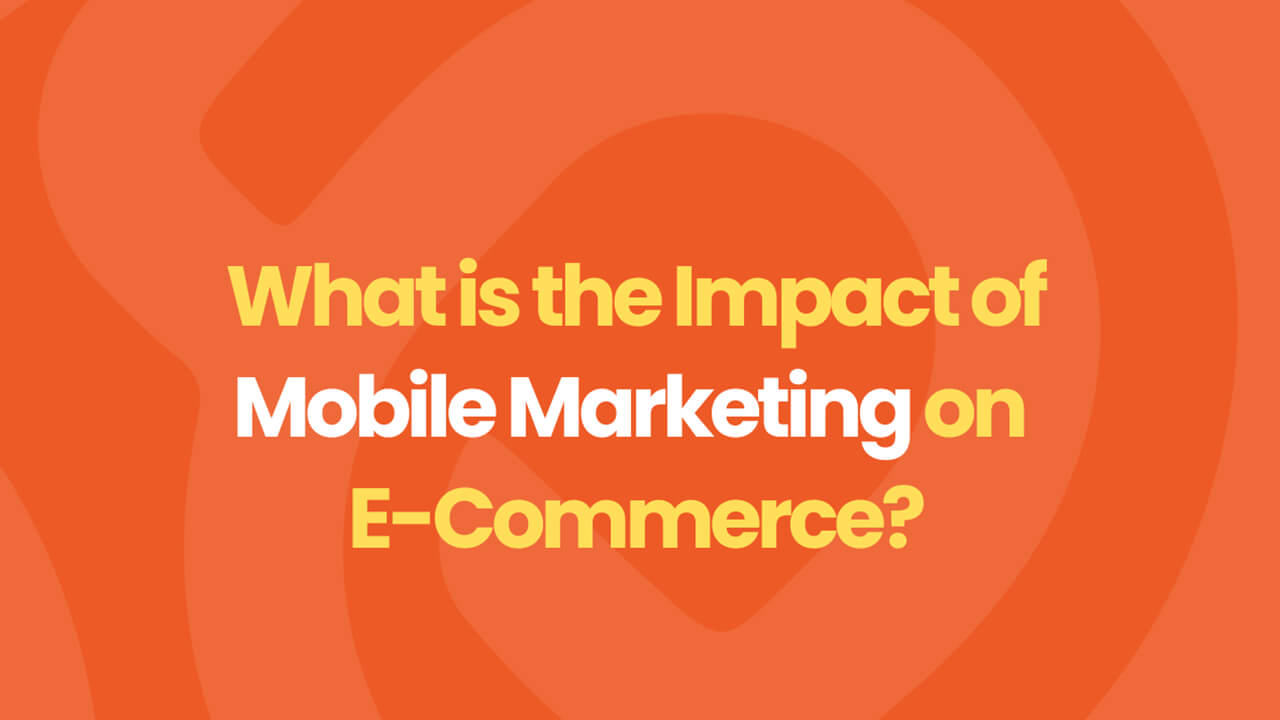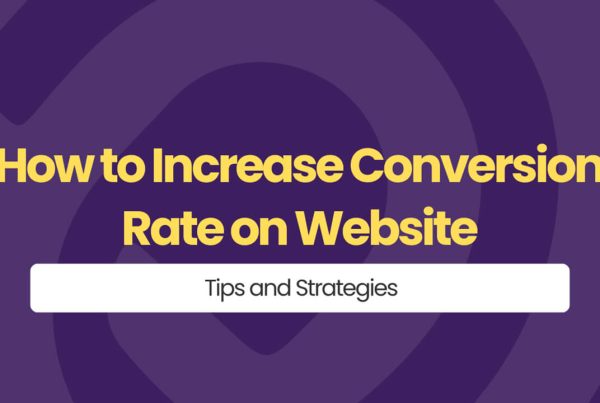
Mobile isn’t just a sales channel anymore; it’s the engine driving e-commerce growth. The impact of mobile marketing on e-commerce is evident in every click, scroll, and swipe. Whether it’s a product ad on Instagram, a push notification, or a one-click checkout, smartphone interactions now shape how people shop and what they buy.
Marketers who fail to adapt to this mobile-first reality risk falling behind. It’s not just about being visible on small screens it’s about optimizing the entire customer journey for today’s on-the-go user.
This blog explores the actual impact of mobile marketing on e-commerce today: what’s working, where the gaps lie, and how marketers can drive engagement, retention, and revenue in a mobile-driven world.
Optimizing for Mobile: The Foundation of E-Commerce Success
To start, let’s get one thing straight. Your customer’s first impression likely happens on a phone. That means the impact of mobile marketing on e-commerce starts with a seamless experience from the very first tap.
If your website isn’t responsive or your app crashes, you’re losing sales. Fast-loading pages, intuitive layouts, and device-friendly design aren’t optional anymore. On top of that, AI now helps tailor the user journey by learning behavior and adjusting content in real time.
App performance also plays a big role. Timely push notifications, loyalty rewards, and frictionless checkouts can drive engagement and boost conversions. Regular testing, supported by analytics, keeps the user experience smooth and competitive.
Social Media: The Importance of Mobile Marketing
Next, social media platforms are where marketing on mobile becomes most powerful. Instagram, TikTok, and Facebook are not just for scrolling; they’re built for selling. E-commerce brands are using shoppable posts, influencer partnerships, and direct DMs to drive purchases instantly.
In 2025, social media strategies must go beyond posting pretty visuals. AI now personalizes feeds in real time, giving users content they’re most likely to act on. As a result, well-timed and well-placed ads can turn interest into action.
Additionally, niche platforms and emerging networks offer access to untapped audiences. For example, short-form video content on platforms like TikTok allows for creative product demos that convert on the spot.
Data-Driven Mobile Marketing
So how do smart marketers win? They use data. The impact of mobile marketing on e-commerce is amplified when paired with data analytics and AI. Today’s tools track everything from screen taps to abandoned carts.
With this data, marketers launch hyper-targeted campaigns that match user behavior. Whether it’s geolocation-based offers or retargeting users with abandoned cart emails, data fuels every move.
Furthermore, mobile marketing allows for deep customer intelligence. Behavioral tracking, feedback loops, and A/B testing help refine messages that convert better. This is especially valuable for B2B and high-ticket e-commerce brands looking to build long-term loyalty.
Enhancing Customer Experience Through Mobile Innovation
Innovation is no longer a bonus; it’s a requirement. The benefits of mobile marketing grow when brands invest in technology that enhances user experience.
For instance, augmented reality (AR) lets users visualize products in real time. Voice search speeds up product discovery. AI chatbots handle support instantly, without making customers wait.
Also, 5G is pushing the future of mobile marketing by making these interactions faster and smoother. Personalized deals, AI-driven recommendations, and seamless navigation now define what customers expect.
To stay competitive, brands must constantly improve their mobile offerings with smarter, faster, and more intuitive features.
Key Benefits of Mobile Marketing in E-Commerce
Understanding the impact of mobile marketing on e-commerce begins with recognizing its core advantages.
1. Instant Reach and Real-Time Engagement
Mobile lets brands connect with customers instantly. Push notifications, SMS alerts, and in-app messages keep users informed at the right moment, which increases the chances of immediate action.
2. Highly Targeted Campaigns
Through location data and behavioral insights, mobile marketing enables precise audience segmentation. Besides, this leads to better personalization, stronger engagement, and higher ROI.
3. Seamless Shopping Experience
Mobile-optimized websites and apps make browsing, comparing, and purchasing easier. Features like one-click checkout and wallets reduce friction and boost conversions.
4. Stronger Customer Loyalty
Apps, loyalty programs, and personalized rewards help build long-term relationships. Moreover, users who download a brand’s app are more likely to return and engage regularly.
5. Data-Driven Decisions
Mobile marketing generates rich user data. Brands can track real-time behavior, optimize campaigns, and make informed decisions that improve performance over time.
Mobile Marketing Best Practices for E-Commerce
Let’s look at what you should do:
- Optimize for mobile-first: Use responsive design, clean layouts, and fast load speeds.
- Use location-based targeting: Send personalized offers to users based on where they are.
- Keep your CTAs clear: Don’t make users guess. Guide them to the next step quickly.
- Segment your audience: Use data to personalize every campaign.
Test everything: Headlines, visuals, button placements—everything affects conversions. - Follow privacy laws: Be transparent about data usage and give users control.
Additionally, these mobile marketing tips serve as the building blocks for strong campaigns that convert and retain.
Conclusion
The impact of mobile marketing on e-commerce is no longer optional. Brands that embrace mobile-first strategies will dominate digital retail, while others will fall behind. Adapt now and stay relevant.


